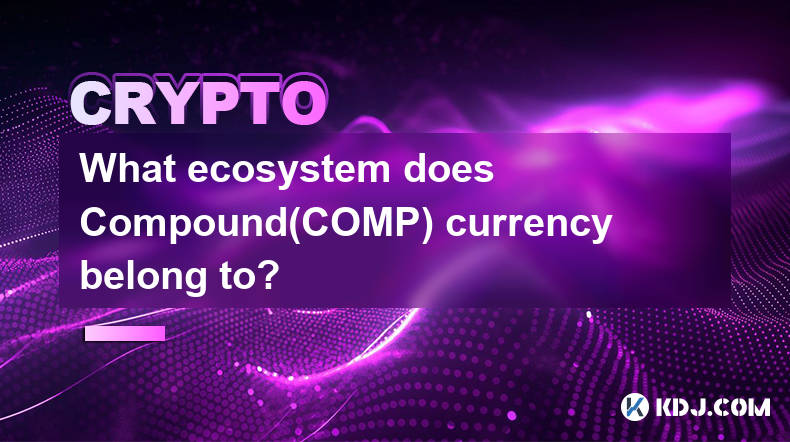-
 Bitcoin
Bitcoin $102,662.5363
4.85% -
 Ethereum
Ethereum $2,193.0670
19.81% -
 Tether USDt
Tether USDt $0.9999
-0.02% -
 XRP
XRP $2.3038
7.50% -
 BNB
BNB $625.3061
3.85% -
 Solana
Solana $162.5747
9.35% -
 USDC
USDC $1.0000
-0.02% -
 Dogecoin
Dogecoin $0.1948
11.09% -
 Cardano
Cardano $0.7630
11.78% -
 TRON
TRON $0.2574
3.22% -
 Sui
Sui $4.0011
17.05% -
 Chainlink
Chainlink $15.7755
11.92% -
 Avalanche
Avalanche $22.1531
11.42% -
 Stellar
Stellar $0.2965
12.70% -
 Shiba Inu
Shiba Inu $0.0...01431
10.58% -
 Bitcoin Cash
Bitcoin Cash $418.8427
3.36% -
 Hedera
Hedera $0.1947
9.85% -
 UNUS SED LEO
UNUS SED LEO $8.8625
0.49% -
 Toncoin
Toncoin $3.1835
5.09% -
 Hyperliquid
Hyperliquid $23.2143
10.04% -
 Litecoin
Litecoin $94.7248
4.08% -
 Polkadot
Polkadot $4.4824
10.46% -
 Monero
Monero $301.2717
6.79% -
 Dai
Dai $1.0001
-0.02% -
 Bitget Token
Bitget Token $4.4883
5.14% -
 Pi
Pi $0.6881
13.78% -
 Ethena USDe
Ethena USDe $1.0000
-0.06% -
 Pepe
Pepe $0.0...01096
30.81% -
 Uniswap
Uniswap $6.0905
23.37% -
 Bittensor
Bittensor $424.6065
12.59%
What ecosystem does Compound(COMP) currency belong to?
The Compound (COMP) token belongs to the decentralized finance (DeFi) ecosystem, which utilizes blockchain technology to facilitate financial transactions without intermediaries.
Dec 08, 2024 at 11:41 pm

What Ecosystem Does Compound (COMP) Currency Belong To?
Introduction
Compound (COMP) is an Ethereum-based decentralized finance (DeFi) protocol that allows users to lend, borrow, and earn interest on their cryptocurrency assets. The COMP token is the native governance token of the Compound protocol, and it grants holders the ability to vote on changes to the protocol's parameters.
The Compound Ecosystem
The Compound ecosystem consists of a number of different components, including:
- The Compound protocol: The core component of the Compound ecosystem, the protocol allows users to lend, borrow, and earn interest on their cryptocurrency assets.
- The COMP token: The native governance token of the Compound protocol, COMP grants holders the ability to vote on changes to the protocol's parameters.
- The Compound Labs team: The team responsible for developing and maintaining the Compound protocol.
- The Compound community: The community of users and developers who use and contribute to the Compound protocol.
How Does Compound Work?
Compound is a decentralized lending protocol that allows users to lend and borrow cryptocurrency assets without the need for a middleman. When a user lends their cryptocurrency to Compound, they receive cTokens in return. These cTokens represent the user's share of the underlying lending pool, and they can be used to earn interest on the user's deposited cryptocurrency.
When a user borrows cryptocurrency from Compound, they must post collateral in the form of another cryptocurrency asset. The amount of collateral that a user must post is determined by the risk profile of the borrowed asset. If the value of the borrowed asset falls below a certain threshold, the user's collateral will be liquidated to cover their debt.
The Benefits of Using Compound
There are a number of benefits to using Compound, including:
- Earn interest on your cryptocurrency assets: You can earn interest on your cryptocurrency assets by lending them to Compound. The interest rate that you earn is determined by the demand for the asset that you lend.
- Borrow cryptocurrency assets: You can borrow cryptocurrency assets from Compound to use for a variety of purposes, such as trading, investing, or spending. The interest rate that you pay on your loan is determined by the risk profile of the borrowed asset.
- Use your cryptocurrency assets as collateral: You can use your cryptocurrency assets as collateral to borrow other cryptocurrency assets. This can be a useful way to access liquidity without having to sell your cryptocurrency assets.
- Participate in the Compound governance: As a holder of COMP tokens, you can participate in the governance of the Compound protocol. This gives you the ability to vote on changes to the protocol's parameters.
Conclusion
Compound is a powerful DeFi protocol that allows users to lend, borrow, and earn interest on their cryptocurrency assets. The protocol is easy to use and offers a number of benefits, making it a great choice for anyone looking to earn interest on their cryptocurrency or borrow cryptocurrency for a variety of purposes.
Disclaimer:info@kdj.com
The information provided is not trading advice. kdj.com does not assume any responsibility for any investments made based on the information provided in this article. Cryptocurrencies are highly volatile and it is highly recommended that you invest with caution after thorough research!
If you believe that the content used on this website infringes your copyright, please contact us immediately (info@kdj.com) and we will delete it promptly.
- Coinbase's Q1 2025 Earnings Report Disappoints Bullish Expectations in Several Key Areas
- 2025-05-09 09:05:13
- Obol Collective Launches the OBOL Token, Powering the Future of Decentralized Ethereum Staking
- 2025-05-09 09:05:13
- Sun Life Financial Inc. (TSX: SLF) (NYSE: SLF) Declares a Dividend of $0.88 Per Share
- 2025-05-09 09:00:12
- Sun Life Announces Intended Renewal of Normal Course Issuer Bid
- 2025-05-09 09:00:12
- Coinbase (COIN) Q1 CY2025 Highlights: Revenue Falls Short of Expectations, but Sales Rose 24.2% YoY to $2.03B
- 2025-05-09 08:55:12
- BlockDAG (BDAG) Clears Its Third Audit, Prepping for Launch
- 2025-05-09 08:55:12
Related knowledge

How to calculate Ethereum fee after EIP-1559? How to save?
May 09,2025 at 08:01am
The introduction of EIP-1559 in August 2021 brought significant changes to the Ethereum network's fee structure, revolutionizing how users interact with transaction costs. This article will delve into the specifics of how to calculate Ethereum fees post-EIP-1559 and offer strategies to save on these fees. Understanding EIP-1559 and its ComponentsEIP-155...

Is Ethereum smart contract call fee high? How to optimize costs?
May 08,2025 at 09:35am
Is Ethereum Smart Contract Call Fee High? How to Optimize Costs? The world of Ethereum smart contracts has revolutionized the way we think about decentralized applications and blockchain technology. However, one of the most frequently discussed topics within this realm is the cost associated with executing smart contract calls. In this article, we will ...

Is Ethereum Layer2 fee low? How to use it cheaper?
May 08,2025 at 03:56am
The question of whether Ethereum Layer 2 solutions offer lower fees and how to use them more economically is a topic of great interest within the cryptocurrency community. Ethereum's Layer 2 solutions have been developed to address the high transaction fees and scalability issues associated with the main Ethereum network. In this article, we will delve ...

How to calculate Ethereum network fee? How to reduce transaction costs?
May 08,2025 at 02:15am
Understanding and managing Ethereum network fees is crucial for anyone involved in transactions on the Ethereum blockchain. The network fee, also known as gas fee, is the amount of Ether (ETH) required to successfully conduct a transaction or execute a smart contract on the Ethereum network. Calculating these fees and finding ways to reduce them can sig...

What is Ethereum Gas Fee? How to optimize Gas Fee to save costs?
May 08,2025 at 03:43am
Ethereum gas fees are a crucial aspect of interacting with the Ethereum blockchain. Understanding and optimizing these fees can significantly impact the cost-effectiveness of transactions and smart contract interactions. In this article, we will delve into what Ethereum gas fees are, how they are calculated, and provide detailed strategies for optimizin...

How to perform MOVE cross-chain transfer? What to do if the gas fee is too high?
May 07,2025 at 08:03pm
Introduction to MOVE Cross-Chain TransferCross-chain transfers have become an essential part of the cryptocurrency ecosystem, allowing users to move assets between different blockchain networks. One of the popular protocols for achieving this is the MOVE cross-chain transfer. This article will guide you through the process of performing a MOVE cross-cha...

How to calculate Ethereum fee after EIP-1559? How to save?
May 09,2025 at 08:01am
The introduction of EIP-1559 in August 2021 brought significant changes to the Ethereum network's fee structure, revolutionizing how users interact with transaction costs. This article will delve into the specifics of how to calculate Ethereum fees post-EIP-1559 and offer strategies to save on these fees. Understanding EIP-1559 and its ComponentsEIP-155...

Is Ethereum smart contract call fee high? How to optimize costs?
May 08,2025 at 09:35am
Is Ethereum Smart Contract Call Fee High? How to Optimize Costs? The world of Ethereum smart contracts has revolutionized the way we think about decentralized applications and blockchain technology. However, one of the most frequently discussed topics within this realm is the cost associated with executing smart contract calls. In this article, we will ...

Is Ethereum Layer2 fee low? How to use it cheaper?
May 08,2025 at 03:56am
The question of whether Ethereum Layer 2 solutions offer lower fees and how to use them more economically is a topic of great interest within the cryptocurrency community. Ethereum's Layer 2 solutions have been developed to address the high transaction fees and scalability issues associated with the main Ethereum network. In this article, we will delve ...

How to calculate Ethereum network fee? How to reduce transaction costs?
May 08,2025 at 02:15am
Understanding and managing Ethereum network fees is crucial for anyone involved in transactions on the Ethereum blockchain. The network fee, also known as gas fee, is the amount of Ether (ETH) required to successfully conduct a transaction or execute a smart contract on the Ethereum network. Calculating these fees and finding ways to reduce them can sig...

What is Ethereum Gas Fee? How to optimize Gas Fee to save costs?
May 08,2025 at 03:43am
Ethereum gas fees are a crucial aspect of interacting with the Ethereum blockchain. Understanding and optimizing these fees can significantly impact the cost-effectiveness of transactions and smart contract interactions. In this article, we will delve into what Ethereum gas fees are, how they are calculated, and provide detailed strategies for optimizin...

How to perform MOVE cross-chain transfer? What to do if the gas fee is too high?
May 07,2025 at 08:03pm
Introduction to MOVE Cross-Chain TransferCross-chain transfers have become an essential part of the cryptocurrency ecosystem, allowing users to move assets between different blockchain networks. One of the popular protocols for achieving this is the MOVE cross-chain transfer. This article will guide you through the process of performing a MOVE cross-cha...
See all articles






















































































